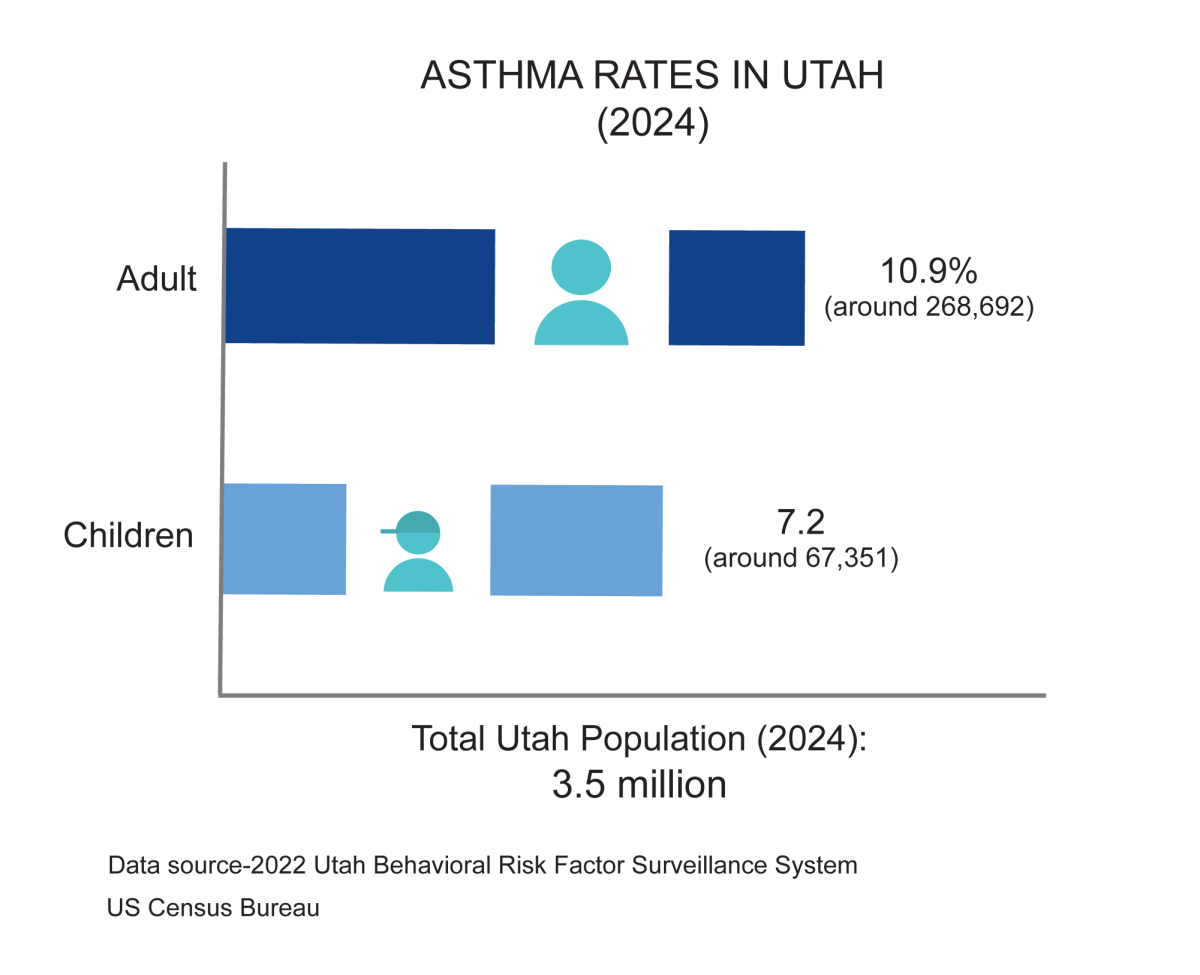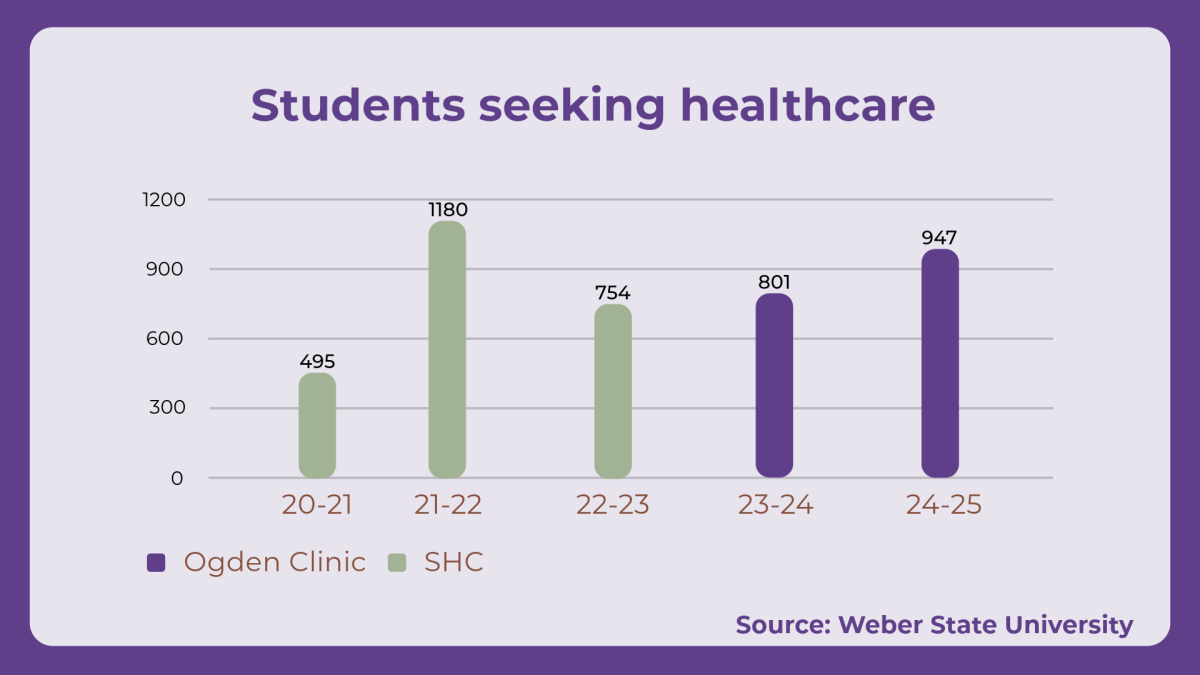
Ah, fall is in the air. The leaves are changing, the nights are getting colder and, unfortunately, illnesses are running amuck.
Each year, at the beginning of October, the Student Health Center at Weber State University offers free flu shots for students while supplies last.
“We encourage students to get flu vaccines when we have them available for free every first of October until they are gone,” Colette Cooper, office specialist and CNA for the center, said.
Influenza is a type of respiratory illness that occurs suddenly, bringing on symptoms of fever, chills, body aches and tiredness. Outbreaks can happen as early as October; however, most of the flu activity peaks between December and February.
While shots are available for any student on campus, some students have decided to opt out of the shot.
“I personally feel myself get sick with the flu after getting [the vaccine], so I try to stay away from it,” Megan Pollock, a criminal justice major, said.
Contrary to popular belief, the center says that it is impossible to get the flu from the vaccine itself. However, if a person is infected with the flu before he or she receives the shot, the virus can still make that person ill.
Other students at WSU are willing to bear the pain of a shot in order to prevent illness.
“I just always get sick every year,” Megan Tingey, a senior at WSU, said. “And when I get the shot, I don’t get sick.”
According to the center, flu activity is currently low in the United States, but the Centers for Disease Control and Prevention (CDC) has received reports of early outbreaks across the country.
CDC researchers indicate that the flu vaccine will protect against the influenza viruses that have been projected to occur this season.
WSU has not seen a severe outbreak of the flu in a few years.
“Looking at last year’s stats, we saw fifty-four student patients with influenza-like illnesses,” Cooper said.
According to Cooper, all of those cases were reported to the State Health Department, but that still does not mean those students had the flu.
“We do have to run a specific lab test to get a positive flu [sample] or not, which can be very expensive,” Cooper said.
In the event an outbreak does occur, the center and the university have extra precautions in place to prevent a large, campus-wide outbreak. According to Cooper, a few years ago, WSU experienced an incident where a student tested positive for H1N1. The student lived on campus and was quarantined until he was no longer contagious.
According to Cooper, it is easiest to catch the flu when in close proximity to large groups. For example, riding the shuttle and exchanging seats with numerous students can cause greater exposure and risk of becoming ill.
To help protect students, the Student Health Center has some advice: “Use common sense; cover your cough, wash your hands, stay home when sick, especially when you have flu-like symptoms.”
For more information about the flu or to schedule an appointment to get a flu vaccine, visit the Student Health Center in room 192 of the Student Services Center, or visit their website.













